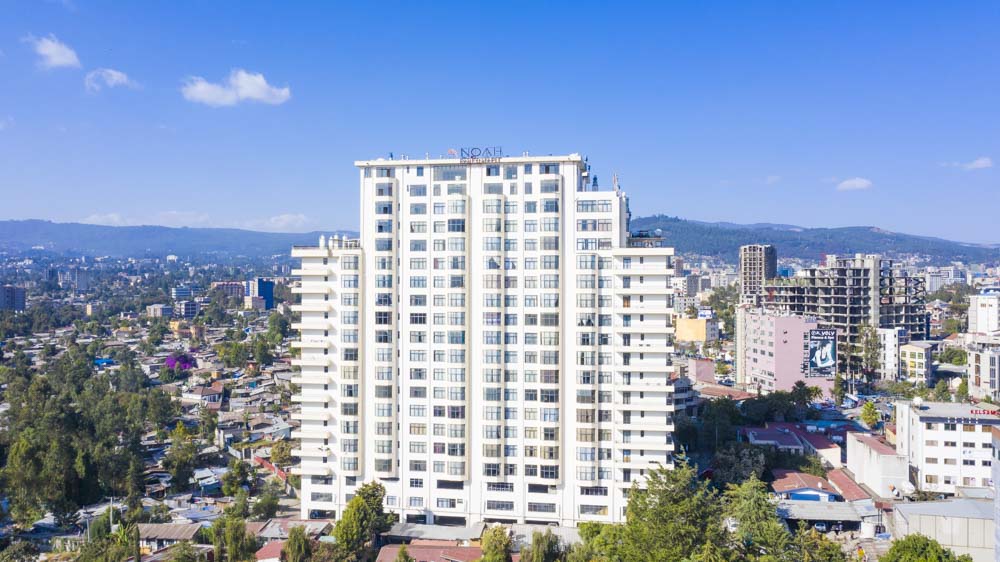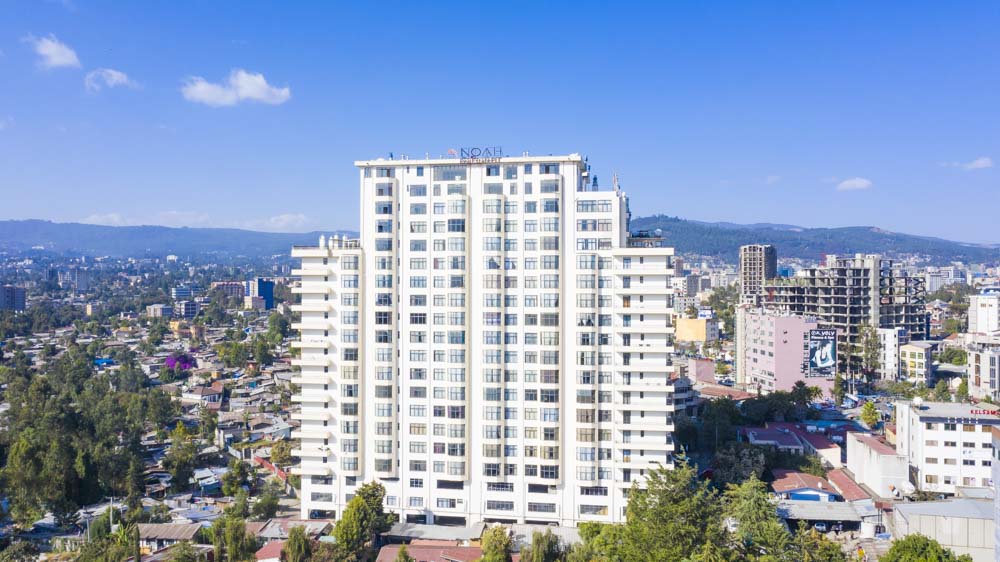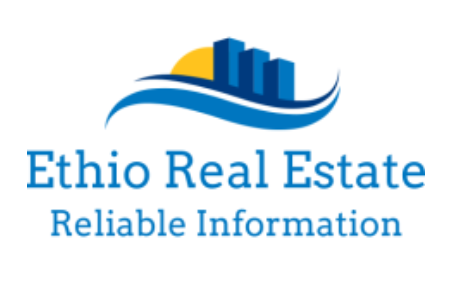
This is a guest post. If you are interested in contributing articles to EthioRealEstate.com, please reach out to us via email: Editor@EthioRealEstate.com
The (apartment) rental market in Addis Ababa, Ethiopia, is a complex and dynamic environment that is influenced by various factors. The demand for rental apartments in Addis Ababa is driven by the growing urbanization, increasing population, returning diaspora, and working expats in the country. However, the supply of high-end rental apartments in Addis Ababa is limited, resulting in higher demand and competitive rental prices.
So, as a property owner in Addis Ababa, how do you determine the rent for your apartment? Here are 22 factors to consider when you plan to rent out your apartment:
1 – Location: The location of the apartment is a significant factor in determining the rent amount. Apartments in prime, desirable, and upscale neighborhoods, near cafes, restaurants, schools, shopping centers, and entertainment options, in safe and sought-after neighborhoods, may command a higher rent due to their convenience and accessibility.
2 – Furnished or unfurnished: Furnished apartments, which come with furniture and appliances, generally command a higher rent (up to 25% to 30% more than unfurnished units) compared to unfurnished apartments, as tenants benefit from the convenience of having ready-to-use furniture and appliances. In addition, tenants do not have to deal with selling their used furniture when they move out or leave the country.
3 – Size of the apartment: The size and condition of the apartment, including the number of bedrooms, bathrooms, and overall square footage (square meter), can also affect the rent amount. Larger apartments or apartments with modern amenities, updated appliances, and well-maintained interiors generally command a higher rent compared to smaller apartments. Apartments with unique or desirable layouts, such as penthouses, lofts, or bedrooms that do not share walls with their next-door neighbour(s), may also have a higher rent due to their unique privacy features.
4 – Age and condition: The age and condition of the rental property itself can also affect the rent amount. Older properties or properties in poor condition may command a lower rent, while newer properties or properties in excellent condition may fetch a higher rent.
5 – Tenant profile: Landlords may consider the suitability of potential tenants, including their employment and income stability, and rental history, when determining the rent amount. Tenants with a strong profile may be able to negotiate lower rent or more favourable lease terms.
6 – Rent Payment Frequencies: Landlords may offer rental incentives to expats, such as one or two-months payment plans, instead of the usual six months of upfront rent that is commonly practiced in Addis. This could attract tenants and fill vacancies quickly.
7 – Lease terms and duration: The lease terms and duration can also influence the rent amount. Longer lease terms or leases with more favourable terms for tenants, such as lower security deposits, may result in lower monthly rent, as they provide more stability for the landlord and reduce turnover costs. A month-to-month lease may come with a higher rent compared to a longer-term lease, like a year or two.
8 – Market demand: The demand for apartments in a particular area or market can significantly impact the rent amount. In a competitive rental market with high demand and limited supply, landlords may charge a higher rent. Conversely, in a less competitive market with lower demand, rent may be lower to attract tenants.
9 – Comparable rents in the area: Landlords often consider the rent charged for similar (note: similar, not identical) apartments in the same area when determining the rent amount. Although I have not seen recent rental market research in Addis, a typical high-end two-bedroom apartment in downtown Bole goes for about $1,600 to $2,600 USD per month.
10 – Competition: Rental demand and competition in the local market can also affect the rent amount. In areas with high demand for rental properties and limited supply, landlords may be able to charge a higher rent. Conversely, in areas with low demand and high vacancy rates, landlords may be more willing to negotiate a lower rent to attract tenants.
11 – Renovations or upgrades: Apartments that have undergone recent renovations or upgrades, such as new flooring, updated appliances, new paint, or modernized amenities, may command a higher rent compared to apartments that have not been updated or maintained recently.
12 – Operating expenses: Landlords consider their operating expenses, including mortgage (interest rates), property taxes, insurance (by the way, most properties in Addis are not insured), maintenance costs, and utilities, when determining the rent amount. Landlords aim to cover their expenses while also making a profit.
13 – Amenities and facilities: Apartments with additional amenities and facilities, such as a fitness centre, spa, swimming pool, supermarket, and laundry facilities, may command a higher rent compared to apartments without these amenities.
14 – Utilities and other expenses: The allocation of utilities and other expenses, such as water, electricity, gas, Internet, and trash removal, can affect the rent amount. Apartments with utilities or other expenses included in the rent may command a higher rent compared to apartments where tenants are responsible for these expenses separately.
15 – Pet policies: Apartments that allow pets or have pet-friendly policies may charge higher rent or additional pet fees to compensate for potential damages or additional maintenance costs associated with having pets on the premises.
16 – Political climate: Rent prices may fluctuate depending on the political situation and rental market trends. For example, in times of political unrest, rent prices may be lower as demand goes down, and during times of stability, demand and rent amounts go up.
17 – Rent increases over time: Some landlords may include provisions for rent increases over time in the lease agreement, such as annual rent escalations or periodic adjustments based on inflation or other factors. These provisions can impact the rent amount over the duration of the lease.
18 – Maintenance responsibilities: The division of maintenance responsibilities between landlords and tenants can also affect the rent amount. Apartments where landlords are responsible for most or all maintenance and repair costs may command a higher rent compared to apartments where tenants are responsible for a larger portion of maintenance responsibilities.
19 – Accessibility features: Apartments with accessibility features, such as ramps, wider doorways, grab bars, wheelchair accessibility, or other accommodations for tenants with disabilities, may command a higher rent due to the additional amenities and modifications provided.
20 – Property management fees: In some cases, out-of-country landlords may hire an agent to manage their apartment on their behalf. The cost of this agent may be factored into the rent amount.
21 – Parking availability: The availability of parking, whether it’s on-site, off-site, or street parking, can impact the rent amount. Apartments with designated parking spots or garages may command a higher rent compared to apartments without parking options.
22 – Economic factors: General economic factors, such as inflation, economic growth, and market conditions, can also affect the rent amount. In times of economic uncertainty or downturns, rent amounts may be impacted.
Conclusion
It’s important to note that the specific factors that influence rent amounts may vary depending on additional local market conditions in Addis. Rent price determination is ultimately a negotiation between landlords and tenants, and it’s important for both parties to understand the factors that may affect the rent amount and come to a mutually agreed-upon rent price.
Editor’s Note: The image below shows Centrum Apartments, one of the high-end apartment buildings in Addis Ababa (Bole Atlas area) developed by Noah Real Estate, one of the Top 10 Developers in Ethiopia.


Thanks for this well researched article. I think the real estate market in the country will be declining in the coming years due to government policies. These policies are usually not well thought, and got introduced quickly without public consultation and feedback. Cost of building materials, labour and associated costs have gone up dramatically and many are hesitating to enter the market. The government wants tens of thousands of apartments to be built in Addis, but at the same time, they are discouraging the developers with their negative policies. Something is seriously wrong here.
The government must bring forward positive and encouraging policies so developers can enter the market. For example, the time it takes to get permits, get water, electricity, property deeds, and import project related materials, etc. must be simplified and minimized. Then, we can have a healthy real estate market in the country.
Thank you ato Mamush for this well versed, comprehensive and quite objectively addressed article.